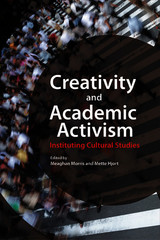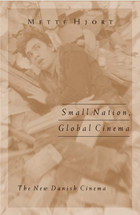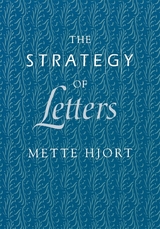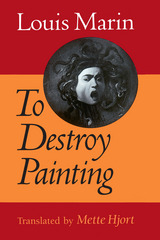
This book also investigates the impact of managerialism, marketization, and globalization on university cultures, asking what critical cultural scholarship can do in such increasingly adversarial conditions. Experiments in Asian universities are emphasized as exemplary of what can or could be achieved in other contexts of globalized university policy.
Contributors. Tony Bennett, Stephen Ching-Kiu Chan, Kuan-Hsing Chen, Douglas Crimp, Dai Jinhua, John Nguyet Erni, Mette Hjort, Josephine Ho, Koichi Iwabuchi, Meaghan Morris, Tejaswini Niranjana, Wang Xiaoming, Audrey Yue

This book also investigates the impact of managerialism, marketization, and globalization on university cultures, asking what critical cultural scholarship can do in such increasingly adversarial conditions. Experiments in Asian universities are emphasized as exemplary of what can or could be achieved in other contexts of globalized university policy.
Contributors. Tony Bennett, Stephen Ching-Kiu Chan, Kuan-Hsing Chen, Douglas Crimp, Dai Jinhua, John Nguyet Erni, Mette Hjort, Josephine Ho, Koichi Iwabuchi, Meaghan Morris, Tejaswini Niranjana, Wang Xiaoming, Audrey Yue


Each interview is preceded by a photograph of the director, biographical information, and a filmography. Frame enlargements are used throughout to help clarify particular points of discussion and the book as a whole is contextualised by an informative general introduction. A valuable addition to the growing library of books on Scandinavian film, national cinema and minority cinema.

Hjort offers two key strategies underwriting the transformation and globalization of contemporary Danish cinema—the processes of cultural circulation and the psychological efficacy of heritage. Exploring the Dogma 95 movement initiated by Lars von Trier and Thomas Vinterberg as well as films by Erik Clausen, Gabriel Axel, Henning Carlsen, and Ole Bornedal, among others, Hjort examines means for cinematic globalization specific to Denmark, but then evolves her investigation into a truly comparative framework encompassing references to Hong Kong, Latin America, and Hollywood filmmaking. Providing a fresh way of looking at cultural influence in the era of globalization, Hjort’s concept of “small” nation points as much to the dynamics of recognition, indifference, and participation as it does to more common measures of population size, economic strength, or linguistic reach.
Mette Hjort is professor of intercultural studies at Aalborg University.

Although literary theories describe a world of strategies—textual, discursive, interpretive, and political—what is missing is the strategist. Poststructuralists try to explain agency as the effect of large-scale systems or formations; as a result, intuitions about individual action and responsibility are expressed in terms of impersonal strategies. Mette Hjort's book responds to this situation by proposing an alternative account of strategic action, one that brings the strategist back into the picture.
Hjort analyzes influential statements made by Derrida, Foucault, and others to show how proposed conceptions of strategy are contradictory, underdeveloped, and at odds with the actual use of the term. Why, then, has the term acquired such rhetorical force? Since “strategy” evokes conflict, Hjort suggests, its very use calls into question various pieties of idealism and humanism, and emphasizes a desired break between modernism and postmodernism. It follows that a theory of strategy must explore some of the psychological implications of conflict, and Hjort pursues these implications through traditions as diverse as game theory, discourse ethics, and the philosophy of war. Unstable frames, self deception, promiscuous pragmatism, and social emotion are some of the phenomena she explores as she develops her account of strategic action in the highly competitive domain of letters.
In her reflection on strategy, Hjort draws on such literary examples as Troilus and Cressida, Tartuffe, the autobiographical writings of Holberg, and early modern French and English treatises on theater. For its well-informed and incisive arguments and literary historical case studies, this book will be invaluable to literary theorists and will appeal to readers interested in drama, philosophy and literature, aesthetics, and theories of agency and rationality.

READERS
Browse our collection.
PUBLISHERS
See BiblioVault's publisher services.
STUDENT SERVICES
Files for college accessibility offices.
UChicago Accessibility Resources
home | accessibility | search | about | contact us
BiblioVault ® 2001 - 2025
The University of Chicago Press









